Business braces for the cost of reform
There’s two solid wins for business, but the fear a reform tripwire lurking in the shadows.
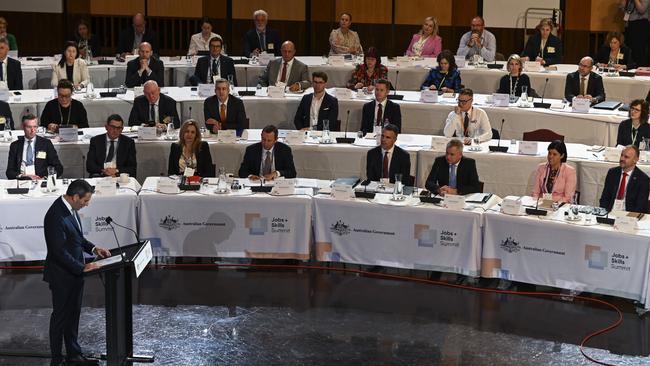
There’s two solid wins for business, but the fear is they may come at a very high cost.
That’s the scorecard so far out of Canberra’s Jobs and Skills summit with the prospect of multi-employer bargaining becoming a reform trip-wire.
There’s been an unusual flurry of goodwill directed at business in recent days, including Prime Minister Anthony Albanese giving the keynote address to the BCA annual dinner on Wednesday night where he declared that his government was “unashamedly pro-business”. He quickly added he was also pro-union but in a placating speech he wanted to see both sides work to search for a solution to lift productivity so wages can rise for workers.
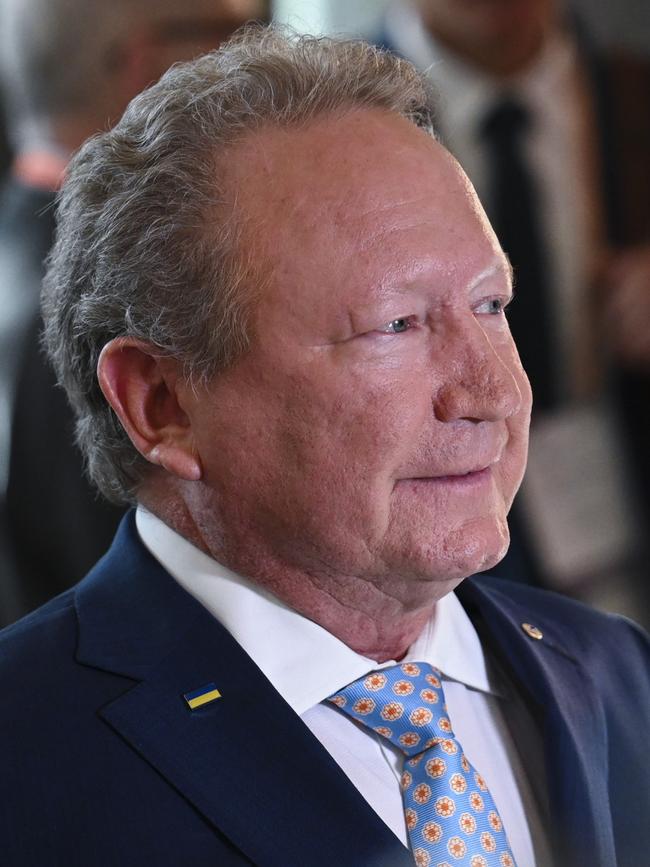
The optics at the Sydney event were important with Treasurer Jim Chalmers, Finance Minister Katy Gallagher and Assistant Treasurer Stephen Jones and several other ministers there despite the tight turnaround to get to Canberra for the Jobs and Skills Summit.
The feeling among senior ministers is that business has faced a string of regulatory changes or confusion in energy policy under the Coalition years and reform fatigue is setting in, which is limiting the appetite to invest. The Prime Minister and Chalmers need to temper the instincts of the broader Labor base to keep business onside.
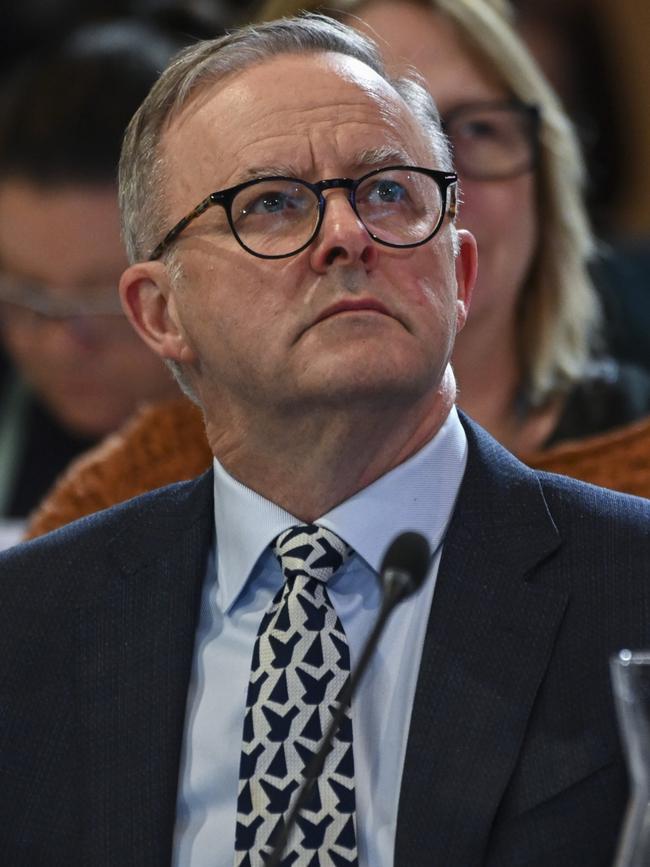
Employment Minister Tony Burke, while saying he planned to move quickly to legislate on making the Fair Work Act’s better off overall test (BOOT) “simple, flexible and fair”, the sting was he was open to removing barriers to multi-employer agreements.
Small business, which has limited resources to get involved in enterprise bargaining talks, has backed the multi-business approach to change. But it simply won’t work for the nation’s big employers and there is no mood for a trade-off on this front.
The hope among executives is that the lack of concrete proposals around multi-employer deals will see the proposal eroded away. There are also expectations that the changes could be limited, specifically to health and aged care, but business still won’t be entirely comfortable with this.
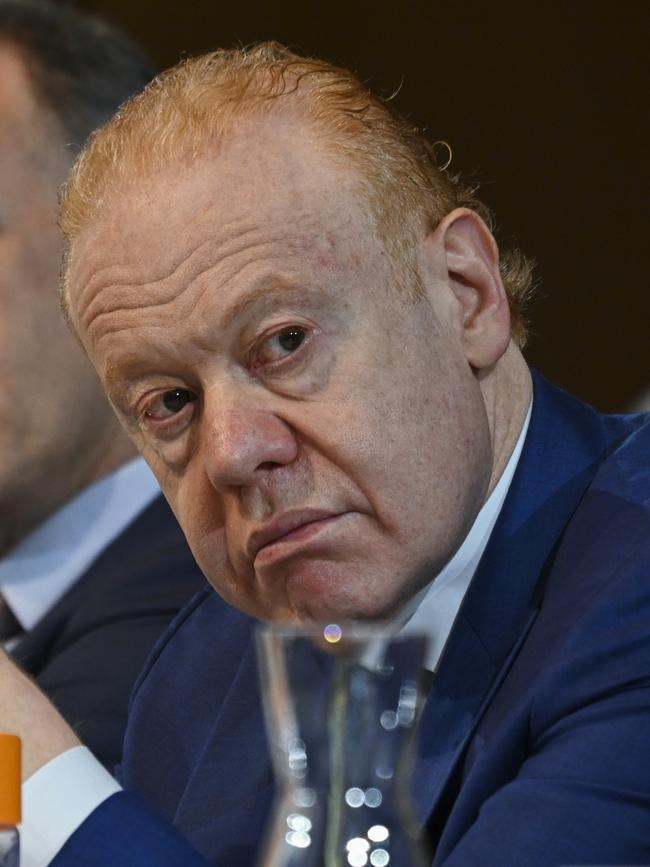
The changes on BOOT could see enterprise deals protected from being torpedoed by third parties or a minority of unsatisfied workers. But some business leaders were quietly excited about a move from the Albanese government that an Enterprise Agreement should replace the award. The amount of complexity that would take away from business would be significant.
Right now among top CEOs the appetite to find consensus and common agreement with unions over workplace rules is genuine, with businesses prepared to give away more to bigger productive gains. The enterprise bargaining system is seen as a way to boost wealth for workers and make businesses stronger but the system is not working as it should.
Albanese, while popular, is instinctively cautious. He knows the economy he inherited risks blowing a head gasket as cash rates ratchet higher to curb inflation. At the same time surging energy costs and pockets of industry dysfunction could turn into a real political backlash.
This is where he needs to bring business along with him, to keep investing and to keep people in jobs and to help keep the lights on in the face of the massive spending task needed to bring the energy grid to where it needs to be.
Vale John Stewart
On a warm February morning in 2004, Scottish banker John Stewart walked into a packed room at the top floor of National Australia Bank’s HQ in Melbourne.
Stewart had just got off a plane from London after getting a midnight call from NAB’s under pressure chairman Charles Allen that Saturday night. Allen told him get on the first plane to Melbourne as he was being named CEO of Australia’s then biggest bank on Monday morning. The 55-year-old was also asked to get straight to NAB’s Bourke Street headquarters as there would be “some” media engagements and investor briefings.
Just hours after landing Stewart, in a pinstripe suit and bright red tie, was facing a full-court press pack bigger than an AFL scandal. It had an extra edge with live TV crosses and international media interest in NAB – then ranked as one of the world’s top 20 banks – which was in the middle of fallout from a foreign exchange trading scandal.
Stewart, 73, passed away last month surrounded by family. He had been battling illness for some time and was at home on his farm in Kent, the southeast of England.
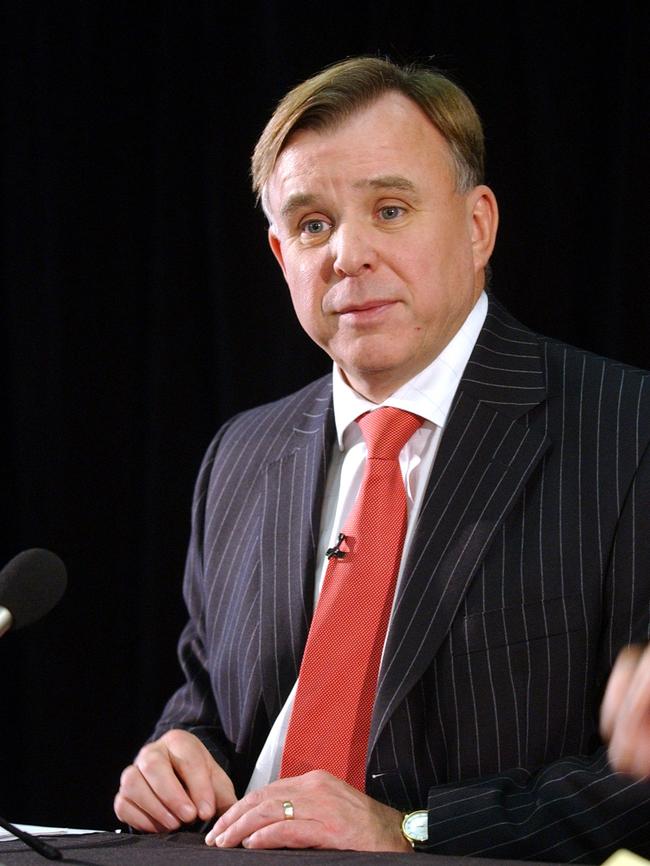
The parachuting of Stewart into NAB began a new frenzied chapter for the troubled banking major. Former boss Frank Cicutto had resigned days earlier after initially hoping to ride out the $360m forex trading scandal which ripped open deeper cultural and governance issues at the bank.
Three months earlier Stewart was named the head of NAB’s long-neglected UK business as part of efforts to turn the unit around. But the sudden appointment made without an executive search added to the sense that NAB was on a burning platform.
As CEO Stewart was seen as a breath of fresh air at the bank that from the outside had been seen as insular and building up a culture of arrogance. Only the year earlier NAB had an open ambition to hit the big league in the UK market through an acquisition. During the media briefing Stewart started by saying the bank’s insular culture needed to change.
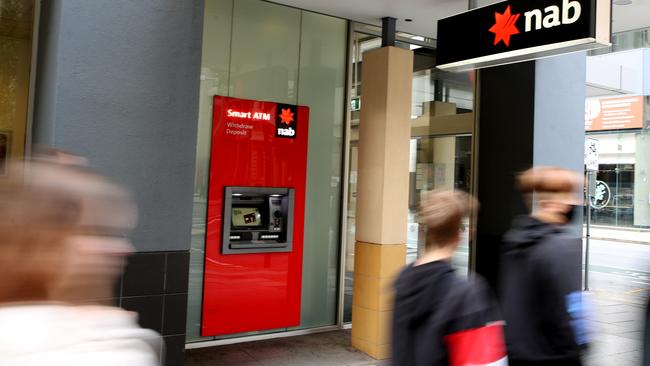
As the son of a car mechanic, Stewart was more interested in scuba diving and sailing during his early years. He ultimately rose his way up from UK lender Woolwich. Stewart spent 23 years with Woolwich before its takeover by Barclays in 2000. He became deputy CEO of Barclays, and was touted as a possible chief executive before retiring. He was also the first union boss, a former staff union representative at Woolwich to become the boss of an Australian bank.
While NAB never reached its potential under Stewart with a string of crises still to follow, he was right for the time, given the need to stabilise the bank as it faced a myriad of regulatory inquiries and even police investigations through the trading scandal. It also was torn at the very top with a fractured board while its legacy issues were still bubbling up. Weeks following his appointment the NAB board went through a public split. To cap a horror year off, one of NAB’s banks in Northern Ireland was subject to one of the country’s biggest bank robberies with the IRA thought to be behind the heist.
NAB was still reeling from more than $3.6bn in losses in its US lending business HomeSide and at the time a portfolio of dangerous credit interests were building up ready to explode during the global financial crisis.
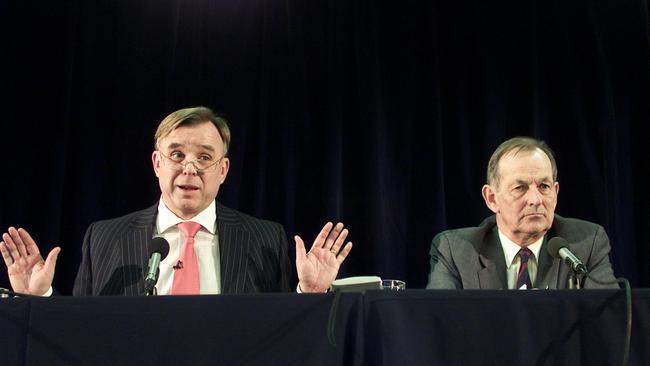
Stewart was never seen as a long-term CEO, indeed he had retired four years later as the GFC hit, passing over to his hand-picked candidate Cameron Clyne. he returned to his Kent farm.
He became a member of the Court of the Bank of England. He was also appointed as chairman of UK wealth major Legal & General and chairman of Guide Dogs for the Blind.
Those who worked with him say Stewart rose to the moment and took charge of NAB. He never shied away from tackling the tough issues. He always kept his cool no matter how much pressure was on at him. He was an eternal optimist and seen as a leader who inspired his staff.
He was based in Melbourne, but later during his tenure he split his time between London where his family was living. Stewart recruited names including Ahmed Fahour, who ran the Australian business, and lured Michael Ullmer away from Commonwealth Bank. He even set the UK banks on a path to exit Ireland and merge the British operations. He sharply reduced the risk tolerance of the institutional business, although some say risk settings later became too conservative for a big four bank. He made the unusual step of acquiring a US midwestern bank in Great Western, which sometimes sat uncomfortably in NAB’s mix of operations before being sold for a profit by later chief executive Andrew Thorburn.
Fundamentally Stewart said his aim at NAB was to restore confidence. “What I found was the order things happen is, happy staff, happy customers, happy shareholders,’’ he said.
johnstone@theaustralian.
com.au


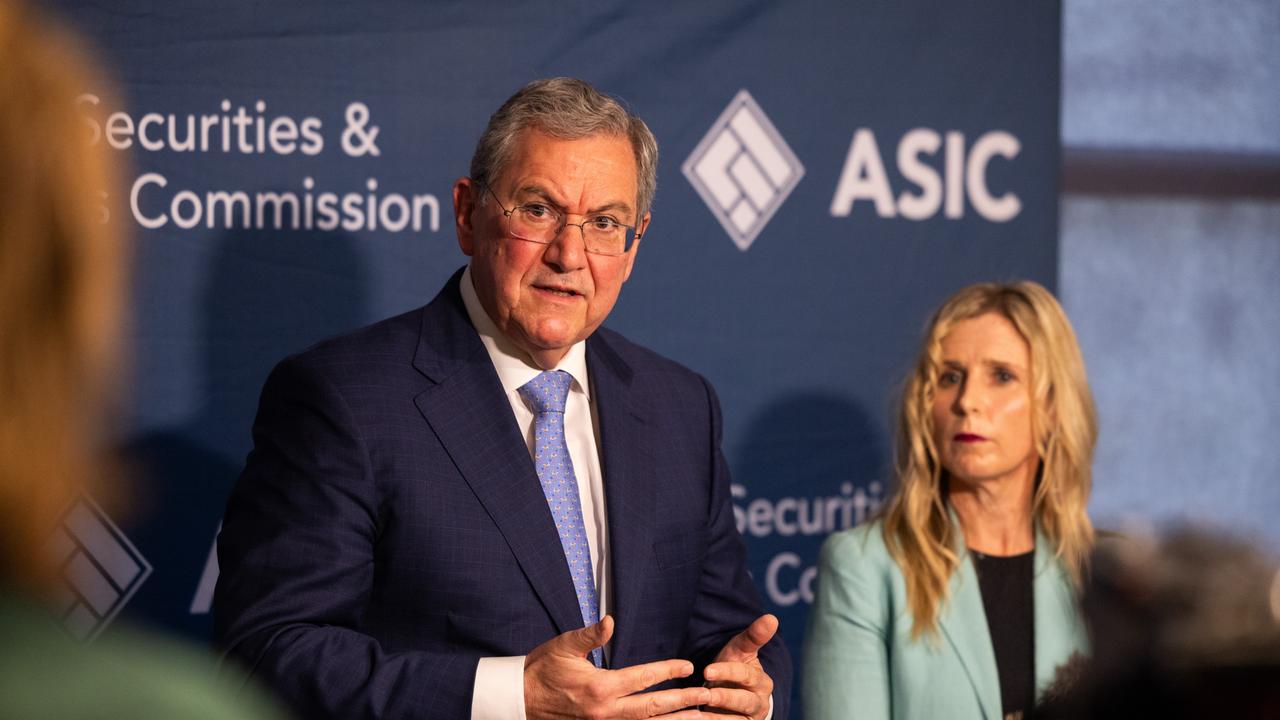
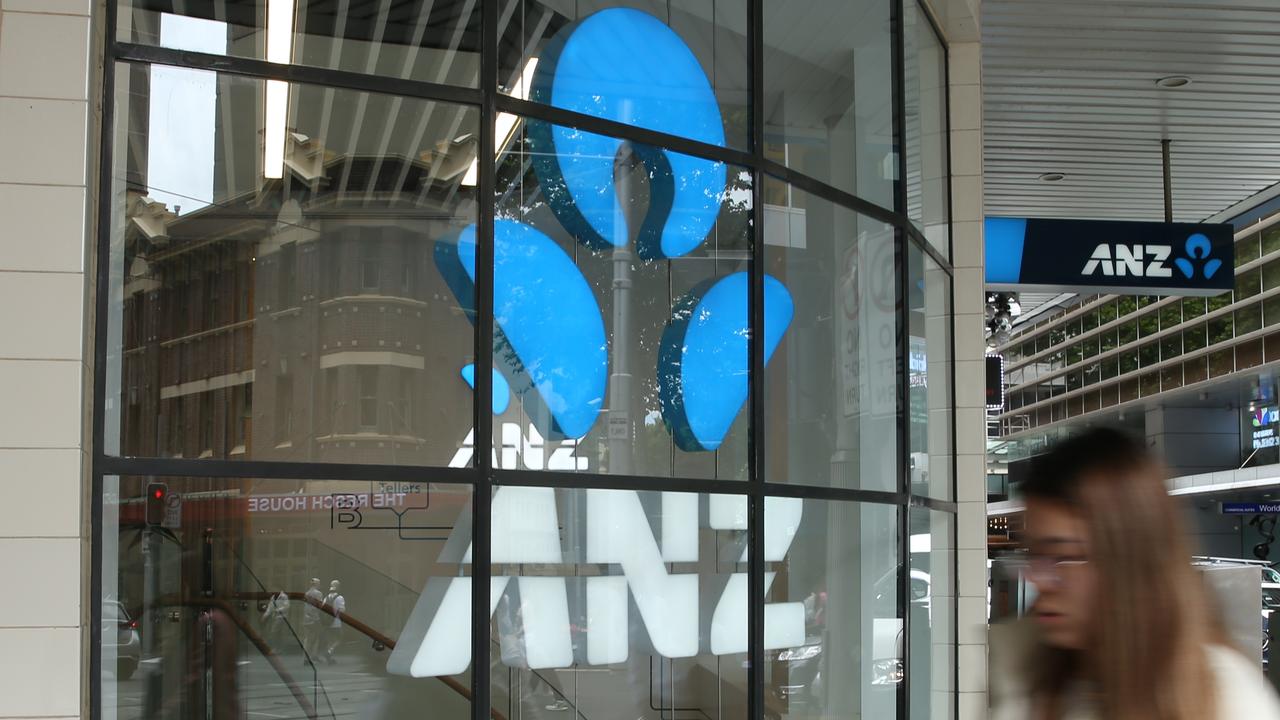
To join the conversation, please log in. Don't have an account? Register
Join the conversation, you are commenting as Logout